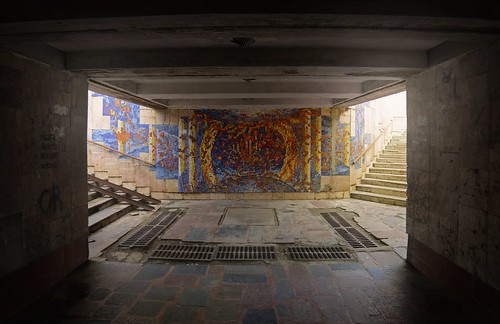I have a dream group. It is small. Four of us meet every two weeks on Zoom, to share and talk about dreams. Our sessions last an hour and a half. We have been meeting for two and a half years, almost as long as Covid has been with us. At first we came together around dreams because the pandemic was making us a little anxious. We all had some background in dreamwork and a long-standing interest in dreaming, and we were all curious to see, not if, but how the pandemic would show up in our dream life, maybe not as an illness but as a situation or a threat.
Knowing something about complexes, I was particularly curious to see how our experience of the pandemic would manifest symbolically and archetypally. We weren't disappointed; it did show up in veiled guises challenging us to adapt or react or think-on-our feet. And it helped enormously to share these dreams with a trusted coterie of insightful dreamers.
After a while our dreams were less about living in a world turned upside down by a virus and more connected with our individuating lives as ongoing adventures. We found that our group did not need a world-wide crisis to remain cohesive. We were / are in it for the long-haul.
The way we work with dreams is based on a technique that one of our members was familiar with from having been in a dream group years ago. This is how it works: If a person has a dream to share, they tell the dream, leaving nothing out (so it works best if the dream isn't too private or uncomfortably personal). While they are narrating their dream the others are listening carefully or jotting down what they can. Then the dreamer tells the dream again, but more slowly, allowing time for the others to write more notes, or let it sink in. Then the group asks questions about the dream, but not probing questions or personal questions. The purpose of asking questions is to flesh out various details that are of interest to a particular person. When there are no more questions, each member of the group asks if they can "borrow" the dream. Once the dreamer gives them permission, they walk through the dream as if it is their dream. Now they can explore the parts of the dream that most interest them or embellish some detail or focus on a certain character. When they are done, they thank the dreamer and formally "return the dream" to them. When each person has shared the dream, the dreamer tells their dream one more time, this time including in their narrative anything that stands out, either a thought, observation, feeling or emotion that came up during someone's sharing.
There is no interpreting involved.
Invariably, the dreamer experiences some kind of new insight into what their dream has revealed to them. Often these insights are startling and profound.
One thing I would like to add, for anyone who is interested in starting a group like this. We all agreed that we would not share dreams that are too personal or "raw", and we were also in consensus that we would not take on nightmares, although, rather unexpectedly, after we had worked together for a while and our mutual trust flourished along with our sense of sharing a great adventure, we did (all four of us, by turns), on occasion, bring some dreams that would qualify as nightmares, and we were able to "hold space" for the dreamer. But I do not recommend sharing nightmares this way unless the group is confident that it can provide a strong container.
Each session begins with one of us (who has volunteered ahead of time) reading a poem of their choice. Each session concludes, more or less on time (90 minutes later) or sometimes earlier by consensus, with the same person reading a different poem of their choice. The poems are the opening and closing but they are not discussed, only appreciated, so we can stay focused on the dreams.
Needless to say this is 90 minutes well spent. We have covered a lot of territory since we began this journey together. We have all learned a lot about ourselves and each other and I highly recommend it.
Personally I feel that the ability of the group to hold together, to hold a safe space for such deep sharing, is essential. That is why the formality of structuring an opening and a closing and why the protocol for "borrowing" and "returning" the dream to the dreamer is baked into our sessions.
This is not "therapy" so much and it is not a substitute for one-on-one analysis, but it is therapeutic and it does delve into some of the areas that analysis explores. One big difference is that analysis includes the transference, which allows the therapist to take on the projection of a guide or teacher or even a parent which allows for the analysant to safely interact with their complexes, and that has proven to be very liberating and empowering because, as the complex is worked through, the transference dissipates. In a sense a good therapist is both solidly him or herself, but they are also a blank slate on which the analysant can project their hopes and fears.
If anyone wants to ask questions about this technique or wants to pursue starting their own group, I would be happy to respond.
(Article changed on Dec 30, 2022 at 9:59 AM EST)





